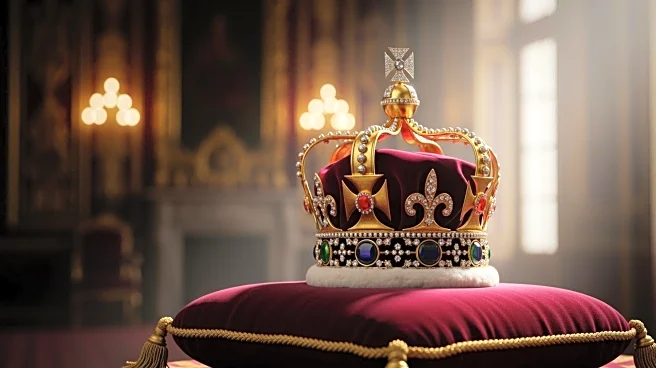What's Happening?
Prince Andrew has decided to give up his titles, including the Duke of York, following intense pressure from King Charles III. This decision comes in the wake of his controversial links to the late Jeffrey Epstein and alleged connections to a Chinese
spy. Despite relinquishing these titles, Prince Andrew will retain the title of a prince due to his birthright as the son of a monarch. His former wife, Sarah Ferguson, will no longer be the Duchess of York. The move has been described as a 'fall from grace' and marks a significant shift in the royal family's dynamics. The decision was reportedly influenced by high-level meetings at Buckingham Palace, with aides reaching a 'tipping point' over the prince's involvement with Epstein.
Why It's Important?
The relinquishment of titles by Prince Andrew is significant as it reflects the royal family's efforts to distance itself from scandals that have marred its reputation. This move could potentially restore public confidence in the monarchy, which has been under scrutiny due to various controversies. The decision also highlights the influence of King Charles III in steering the royal family towards a more accountable and transparent future. The impact on the royal family dynamics is profound, as it sets a precedent for handling similar situations in the future, emphasizing the importance of maintaining the integrity of the monarchy.
What's Next?
Following Prince Andrew's decision, there may be further scrutiny on other members of the royal family to ensure transparency and accountability. The royal family might implement stricter measures to prevent similar controversies from arising. Additionally, public and media attention will likely focus on how the royal family manages its image and relationships moving forward. The decision could also influence public opinion and the monarchy's standing in the UK and internationally.
Beyond the Headlines
The ethical implications of Prince Andrew's decision to relinquish his titles are significant, as it raises questions about accountability and the consequences of personal actions on public roles. This development may lead to discussions about the role of the monarchy in modern society and its relevance in addressing contemporary issues. The cultural impact is also noteworthy, as it challenges traditional perceptions of royal privilege and the responsibilities that come with it.

















